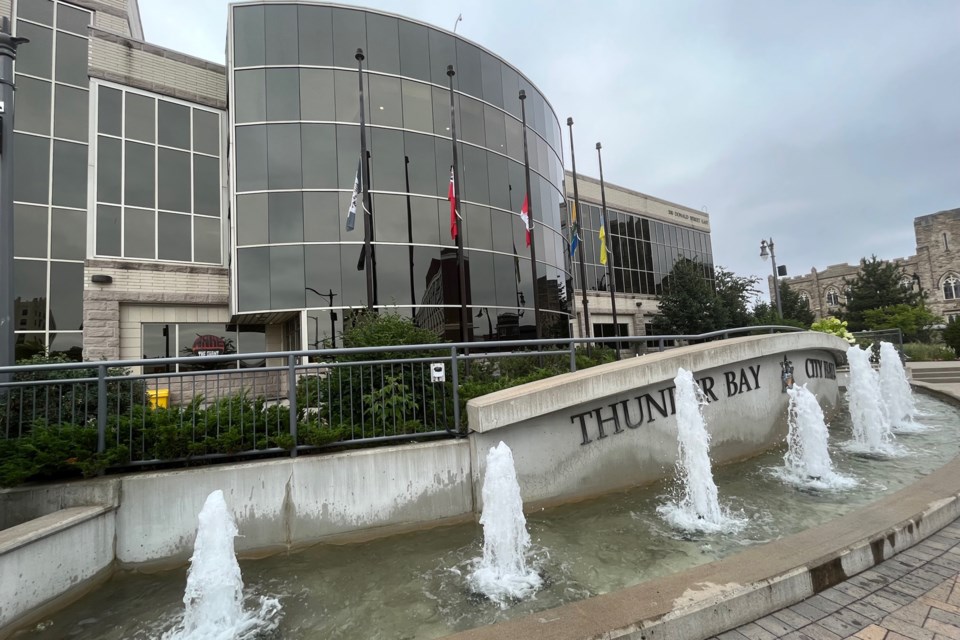THUNDER BAY — Thunder Bay’s municipal government is projected to end the year with a $3.4-million deficit, amounting to roughly one per cent of its budget, driven largely by emergency services costs.
That figure has grown significantly since an April projection that anticipated a $500,000-deficit by year-end.
The largest factors behind the projected deficit are police spending that is trending well over budget and expanded WSIB coverage for historic cancer claims by firefighters, city administration reports.
The figures are included in a second-quarter budget variance report that will be presented to city council on Monday. The report uses spending and revenue figures as of June 30 to project the city’s financial position at year-end.
If the projections prove accurate, the city will be forced to draw millions from its financial reserves, potentially depleting its WSIB reserve fund entirely.
Policing costs are projected to come in $1.8 million over budget, attributed to Police Services Act investigations, overtime, retirement and vacation payouts, and WSIB.
That includes an estimated overage of $200,000 by the police services board, attributed to “administrative and expert panel costs.”
Projected overspending by police has more than doubled since the April report, when it was pegged at $800,000.
The overage comes on top of a police budget that council increased by seven per cent in 2023, reaching $55 million.
Meanwhile, an expansion in Workplace Safety and Insurance Board (WSIB) coverage for cancer claims by firefighters was projected to create $4 million in unbudgeted costs for the city this year.
Most of that figure is likely related to historic claims, with the WSIB reviewing previously denied claims dating back to 1960.
Ontario announced the expanded coverage in March, adding thyroid and pancreatic cancers to the list of conditions presumed to be work-related for firefighters.
The move has been welcomed by Thunder Bay Fire Rescue leadership and the firefighters’ association.
In an interview, Robert Sheppard, vice-president of the Thunder Bay Professional Firefighters Association, said he was surprised by the $4-million estimate, but emphasized the compensation responds to the greatly increased cancer risk firefighters face.
“The statistic that’s thrown out there is on average, the firefighting profession will reduce a firefighter’s life expectancy by 10 years, so that’s a pretty staggering number,” he said.
“It gives our membership a little bit of peace of mind, knowing if they do contract one of these cancers that they will be covered, that their family will be taken care of, that they’ll get recognition on firefighter memorial walls.”
The city declined to make a staff person available for interview on the issue Friday, but said in a statement the $4-million figure was a “preliminary estimate” provided by the WSIB with few further details.
Elsewhere, the city projected surpluses in several departments, though not enough to make up for the overages on policing and WSIB:
- Insurance premiums are trending $800,000 under budget after a switch to a new provider
- $800,000 in projected energy and fuel savings, including reduced fuel consumption by Thunder Bay Transit, which has regularly cancelled runs due to ongoing driver shortages
- Revenues trending $400,000 over budget thanks mostly to municipal fine collection
Staff recommend transferring the insurance surplus to an insurance reserve fund, rather than using it to defray the deficit.
To cover the deficit, staff recommend exhausting the city’s $3.2-million WSIB reserve fund, and using an additional $1 million from the stabilization reserve — the city’s main rainy-day fund — leaving it with a balance of $8 million.
